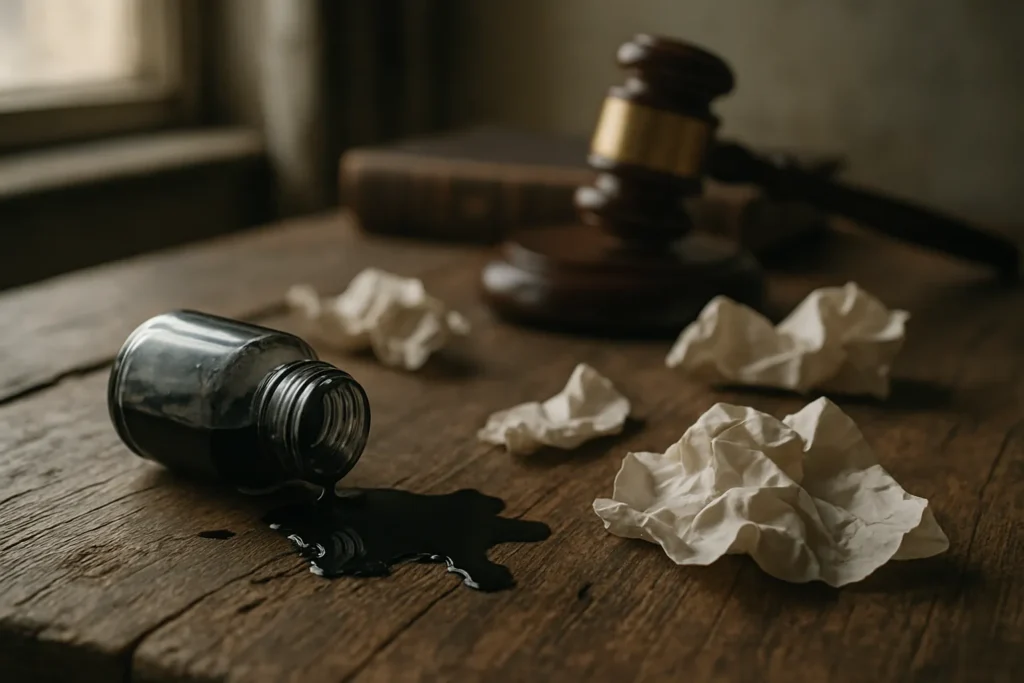When Outrage Boils Over: A Live TV Flashpoint
Sometimes, the temperature of America’s political climate rises so high that it boils over in ways both shocking and deeply symbolic. Such was the case recently in Washington, D.C., where Ed Martin—President Trump’s erstwhile pick to serve as the U.S. Attorney for the District—became the unwilling focus of a national scene set ablaze not just by rhetoric but by a spectacular act of personal rebellion. During a live Newsmax interview, a woman interrupted Martin’s on-air segment by hurling expletives, calling him a “disgusting man,” and spitting in his face before storming off with her canine companion. The image, broadcast instantly across screens and social media, instantly crystallized the deep dissatisfaction and fury simmering in many corners of American society toward figures emblematic of the Trump era.
Is spitting on a public official ever justified? Of course not. Physical acts of protest, however dramatic, skirt the basic tenets of civil discourse and—if anything—often distract from the substance of legitimate grievances. Yet the fierce emotions animating this outburst did not appear in a vacuum. Martin’s record, particularly regarding the January 6th insurrection prosecution, was already a tinderbox. As acting U.S. Attorney, Martin swiftly reassigned or dismissed prosecutors overseeing January 6-related cases and, according to multiple reports, even dropped some charges entirely—a move that drew rare bipartisan criticism and fueled perceptions of overtly political meddling in justice. The timing of this attack, just days after Trump withdrew Martin’s nomination under mounting controversy, lent the incident the unmistakable air of a society nearing its flashpoint, where faith in institutions and their leaders feels ever more precarious.
Newsmax host Rob Schmitt, still visibly shaken, characterized the spitter as a “deranged leftist” and called for prosecutorial consequences. Yet focusing solely on the perpetrator of the confrontation—and branding all protest as irrational—ignores the much deeper crisis unfolding in American law and order.
The Troubling Legacy of Politicized Justice
Political interference in the Department of Justice has long been among America’s most corrosive problems, yet during the Trump administration, the boundary between law and politics blurred like never before. Martin’s tumultuous ride through the D.C. legal circuit offers a cautionary tale. As a self-described “Stop the Steal” activist, Martin wasn’t an ordinary career prosecutor quietly toiling away on procedural matters. His record of dismissals and reassignments, especially around the January 6 prosecutions, prompted concern from both liberal and conservative quarters. Harvard Law’s Richard Painter, a former White House ethics lawyer, warned: “Weaponizing the justice system to protect political allies is exactly what we’re not supposed to do in a democracy. When you undermine the rule of law, you lose public trust—not just in courts, but across society.”
Martin’s commitment to pursue those he deemed “unethical” went so far that he even threatened to investigate political opponents for public statements—not just criminal conduct. After vowing to launch an inquiry into Senate Minority Leader Chuck Schumer over his comments on Supreme Court nominees, Martin made it clear that his role would be defined by political loyalties, not apolitical justice. No wonder his nomination collapsed under bipartisan pressure; no wonder public responses remain so visceral and raw.
“Weaponizing the justice system to protect political allies is exactly what we’re not supposed to do in a democracy. When you undermine the rule of law, you lose public trust—not just in courts, but across society.”
—Richard Painter, Harvard Law
The optics of removing Martin only to have Trump nominate Fox News’ Jeanine Pirro as interim D.C. U.S. Attorney compounded the lack of faith in the process. Are standards and qualifications now trumped by media loyalty and combative soundbites? What message does it send when a high-profile conservative firebrand, without significant prosecutorial experience, is nominated to helm the capital’s justice apparatus?
Highlighting the stakes, a recent Pew Research Center study found that 64% of Americans now believe that political leaders routinely override or ignore professional legal judgments for partisan advantage. The constant push and pull of political influence leaves everyday citizens caught in the crossfire, questioning whether justice is an instrument of fairness or simply a cudgel used by the powerful.
Civility, Accountability, and Where We Go from Here
That a woman would publicly spit on an (ex-)official may speak as much to the desperation felt by some Americans as it does to the dysfunction of our times. Uncivil protest, while always regrettable, is often a symptom—never the root cause—of civic decay. We’ve seen these flashpoints before: during the Vietnam War, protestors flung blood and paint at authority figures; in the civil rights era, acts of civil disobedience were often met with scorn or outright violence. Today, the lines between outrage, activism, and raw disruption can be blurry. Yet, ignoring the underlying causes—be it the corrosion of faith in institutions, brazen politicization of justice, or a tidal wave of polarizing media rhetoric—simply ensures more discord ahead.
An arrest warrant for the woman in question may serve the interests of law enforcement, but does little to address the seeds of this behavior: a perceived lack of recourse, a growing gulf between the governed and those in power, and frustration at leaders who seem to place loyalty over law. Our democracy is strongest not when we paper over differences or deny anger, but when we fight—peacefully and persistently—for accountability and equal justice. “It matters not whether our leaders are spat upon or applauded in public,” says historian Heather Cox Richardson, “what matters is whether our public institutions are worthy of respect again.”
For progressives concerned about the future of justice, this episode is a call to both defend the rule of law and demand higher standards from those who wield its power. Ed Martin’s saga is not simply a story of one man’s public humiliation. It is an emblem of an era when trust in the impartiality of justice is dangerously at stake and serves as a reminder that restoring faith in our legal institutions is essential for any hope of progress or healing.

